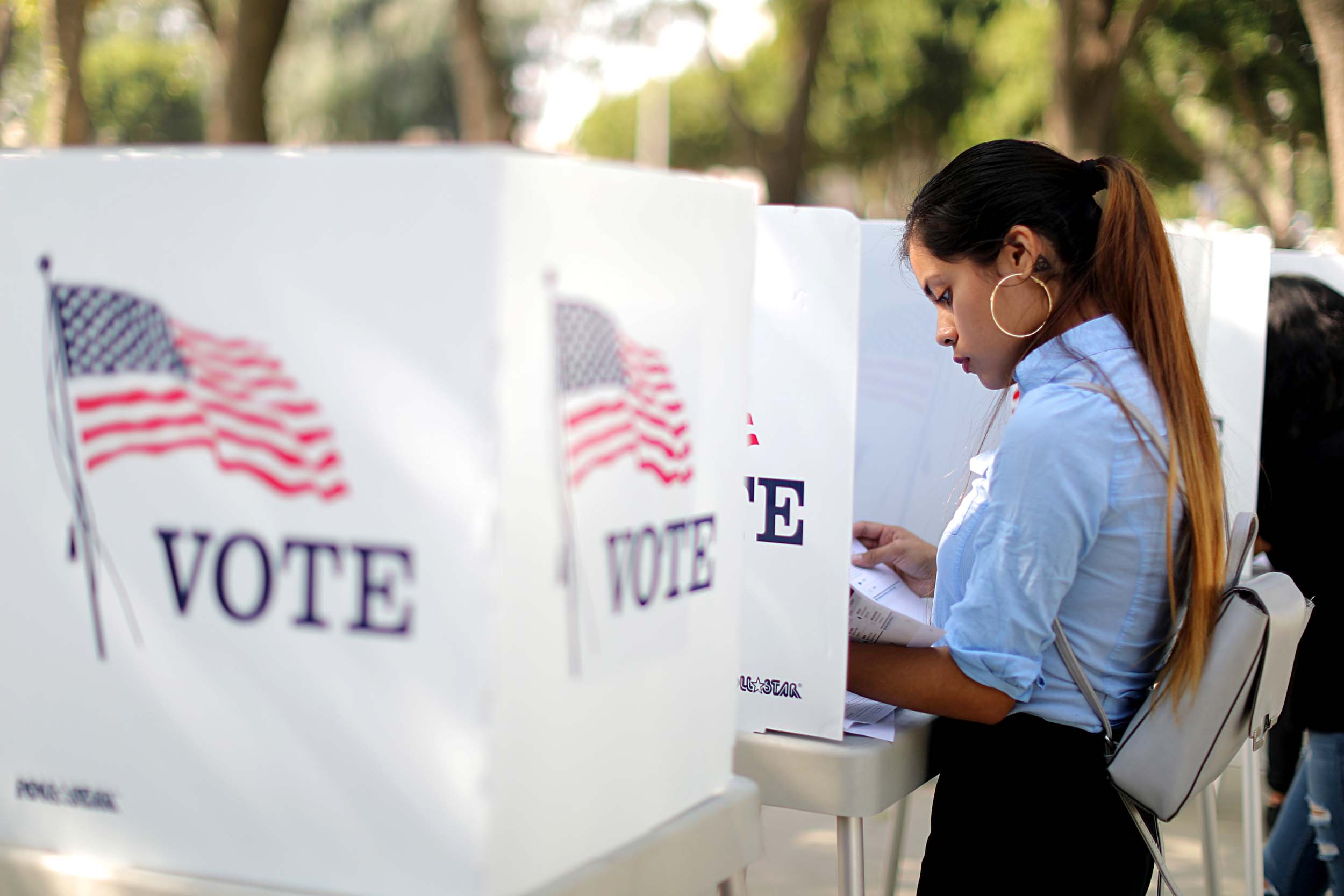Written by: Diego Scharifker, Cisneros Fellow
By 2060, Hispanics/Latinos are projected to make up nearly 30% of the US population. In addition to having a larger impact on our economy and becoming an integral part of the country’s workforce, Latinos will soon be the largest voting block among minorities. So, as the campaign trail for 2020 is beginning, it should come as no surprise that “Latino issues” have become more present and even polarizing in the world of politics. It is crucial that we continue to promote discussion about topics relevant to Latinos, but we also have to make sure politicians aren’t making empty gestures to get closer to our communities.
As new presidential primary contenders keep popping up, many of them have made an effort to reach out to Latinos by adding a Spanish translation to their campaign websites. By doing so, these candidates are showing appreciation for our heritage and capitalize on the power our community has in the next elections. However, it is important to urge them to make sure that effort extends beyond merely using Google translate. Fredrick Velez shows various examples of these candidates’ websites and how their mistranslations have gone seriously wrong. Senator Kamala Harris has since corrected her site after it was revealed that her site had accidentally stated that she had “wasted” her life fighting for the people and that she had “sued” justice. What is clear in all the errors the article revealed is that none of these campaigns were using native speakers to do or check their translations. A good first step for engaging the Hispanic/Latino community is to hire members of the community, but not enough. Latinos should be hired to positions were they can take decisions and play active roles throughout the campaigns.
Even with these errors, the attempt to make their campaigns accessible to Spanish-dominant Latinos is something we notice. Unsurprisingly, given his administration’s xenophobic and disrespectful positions towards Hispanics/Latinos during his presidency, Donald Trump has made no attempt to make his website more accessible to Spanish speakers. With 2020 in mind, Trump may look to appeal to Latino voters, however. Trump and his team have demonstrated significant interest in Florida especially after beating Hilary Clinton there by barely 100,000 votes in 2016. As of 2018, Hispanics make up over 2.1 million or 16% of the registered voters in Florida. Despite his repeatedly aggressive rhetoric against the community and his unsupported accusations that Latinos are responsible for an increase in crime, many analysts have confirmed that Republicans and Trump feel they have an excellent opportunity to to reach out to Latinos in Florida and around the US, the Venezuelan conflict. In contrast to his apparent fond feelings for other authoritarians around the world, the Trump administration has taken a strong stance against the Venezuelan dictator Nicolas Maduro. As a Venezuelan-American, I recognize the importance of this stance to restore democracy in Venezuela, but I do ask myself if this administration might have other interests in mind.
With any of the upcoming candidates, one simple gesture to the Latino community does not equal a platform that will bring a positive impact to Latinos. As our priorities continue to gain strength in the political debate and with several candidates vying for our votes, we must be sure apparent political moves are part of a positive impact for our community and not simply part of an electoral agenda. As 2020 approaches, I encourage us all to pay attention to candidates that don’t stop at gestos and diversity checkmarks and show that they genuinely care about the future of Latinos in the United States and that make these actions integral part of their agendas beyond campaigning.
Diego Scharifker is a Venezuelan-American lawyer, pro-democracy activist and a former leader of the Venezuela’s student movement. He is currently pursuing a MA in Public Administration at GW. Diego's views are his own and and not necessarily reflective of the Cisneros Institute.
Photo Credit: Lucy Nicholson / Reuters file


